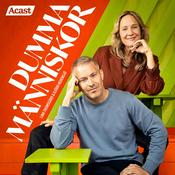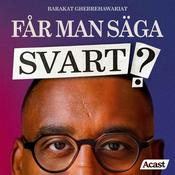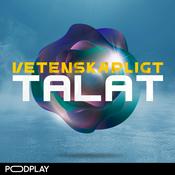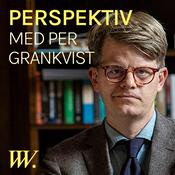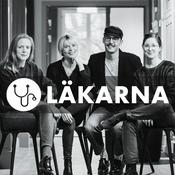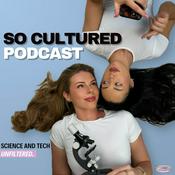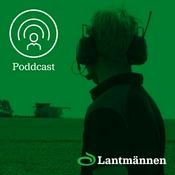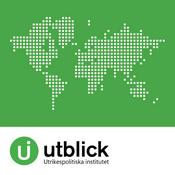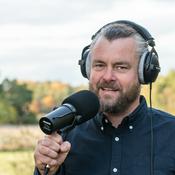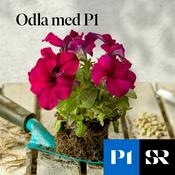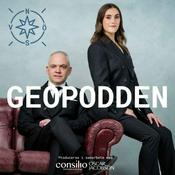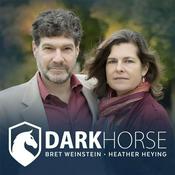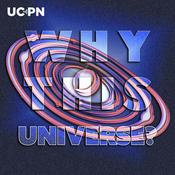The Emic - Anthropological stories from the field
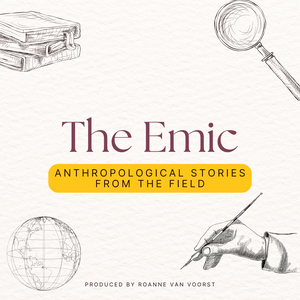
18 avsnitt

17: Tim Ingold on seeing like a reindeer
2025-8-12 | 8 min.
In the autumn of 1971, when he just turned 23 years old, Tim was living in a tiny wooden cabin on the shores of lake Rautaperajärvi, in the far northeastern corner of Finnish Lapland. He was a few months into his doctoral fieldwork with the Skolt Sámi people. The Skolts had been resettled in this remote area following the loss of their homeland to the then Soviet Union in the aftermath of the Second World War. Tim's plan had been to study the micropolitics of their situation as a minority within a minority, but he quickly discovered that for the people themselves, this took second place to the much more pressing concerns with how to get by, from one day to the next, within an unpromising environment. And nothing bothered people more, he found, than an issue around reindeer pastures. This is where the real politics lay. Tim Ingold is a British social anthropologist, currently Chair of Social Anthropology at the University of Aberdeen. He was educated at Leighton Park School and Cambridge University. He is a fellow of the British Academy and of the Royal Society of Edinburgh. His bibliography includes: The Perception of the Environment (2000), Lines (2007), Being Alive (2011), Making (2013) The Life of Lines (2015), Anthropology and/as Education (2017), Anthropology: Why it Matters (2018) and Correspondences (2021). If you want to receive additional photos from the field, personal drawings and behind-the-screens information accompanying the episodes of The Emic, subscribe to Roanne's free monthly email: www.anthropologyofthefuture.com/the-emic

16: Gego (Muhammad Ashry Sallatu) on diving into blue water & big fears
2025-6-25 | 9 min.
When Gego (that's what Muhammad is called by his friends) conducted his PhD-fieldwork in Indonesia, he entered multiple new worlds: the world of anthropology, a region with nature so pristine he did not know it existed, and the world of deep water diving. Only problem: he did not know how to dive. When he entered the water, he was touched by underwater beauty, but confronted with his biggest fears. In this episode, he shares the story of how he overcame his initial panic, and how his fieldwork under water changed him forever. Gego is a lecturer at Hasanuddin University, in the Faculty of Social and Political Sciences, Department of International Relations. Currently, he is in his fifth year of PhD at the University of Amsterdam, and his study is supported by the LPDP Scholarship from the government of Indonesia. His PhD research focuses on the complexities of the interplay between tourism and conservation in Wakatobi, Indonesia. If you want to receive additional photos from the field, personal drawings and behind-the-screens information accompanying the episodes of The Emic, subscribe to Roanne's free monthly email: www.anthropologyofthefuture.com/the-emic

15: Giovanna Parmigiani on paganism, magical cards and sisterhood
2025-6-10 | 5 min.
In this episode, Giovanna talks about a moment in her fieldwork that she returns to often. A quiet moment shared with women that would become her sisters. A moment where something shifted for her. Giovanna Parmigiani is an anthropologist of religion and magic, a scholar of Contemporary Paganisms, the co-chair of the Contemporary Pagan Studies Unit at the American Academy of Religion, and a founding co-convenor of the Network for the Anthropology of History at the European Association of Social Anthropologists. Her work is firmly grounded in ethnographic and auto-ethnographic practices, and her main focus of interest is the relationship between religion, politics, and gender. Her first monograph, Feminism, Violence and Representation in Modern Italy: We Are Witnesses, Not Victims (Indiana University Press, 2019) dealt with violence against women. Her second, The Spider Dance: Tradition, Time, and Healing in Southern Italy (Equinox Publishing, 2024), deals with contemporary pagan women and healing. She writes about conspirituality and conspiracy theories and has a forthcoming book on this topic, Lived Conspirituality: Researching Conspiracy Theories and Alternative Spiritualities (Routledge). Parmigiani is the host of the Gnoseologies series at the CSWR. At HDS, she teaches courses on contemporary paganisms; earth-based religions; New Age spiritualities; the anthropology of magic, religion, and healing; and religion, materiality, and the senses. If you want to receive additional photos from the field, personal drawings and behind-the-screens information accompanying the episodes of The Emic, subscribe to Roanne's free monthly email: www.anthropologyofthefuture.com/the-emic

14: Willem van Schendel on embarrassing dinners
2025-2-12 | 3 min.
While conducting fieldwork in Bangladesh, renowned anthropologist and historian Willem van Schendel found himself at a dinner invitation. Initially a cozy evening, time seemed to stretch on forever until the food was finally served. But little did he know, his perception of time was about to be turned upside down. Tune in to this episode of The Emic to hear Willem's remarkable, or in his words 'embarrassing' story and find out what it's really like to have a 'long' dinner in a completely different cultural context. Find Professor Willem van Schendels' publications here: https://uva.academia.edu/WillemVanSchendel If you want to receive additional photos from the field, personal drawings and behind-the-screens information accompanying the episodes of The Emic, subscribe to Roanne's free monthly email: www.anthropologyofthefuture.com/the-emic

13: Rahil Roodsaz on the unexpected dresscode of a religious gathering
2024-11-29 | 6 min.
When Rahil was invited by her Iranian interlocutors to a religious gathering for women, she dressed to the occasion - or so she thought. But then she learned something important. A beautiful episode about high heels, gossip, and our prejudices. Rahil Roodsaz is an assistant professor at the anthropology department of the University of Amsterdam. She studies gender and sexuality, particularly focusing on feminist, queer, and decolonial viewpoints. In 2023, she was awarded an NWO-Vidi grant for the project Rhythms of Love, which aims to explore how people in midlife (age 35-60) maintain long-term romantic relationships during life transitions. It seeks to understand the complexities of enduring love in the face of societal challenges like work stress, parenting, and societal pressures.
Fler podcasts i Vetenskap
Trendiga poddar i Vetenskap
Om The Emic - Anthropological stories from the field
Lyssna på The Emic - Anthropological stories from the field, Dumma Människor och många andra poddar från världens alla hörn med radio.se-appen

Hämta den kostnadsfria radio.se-appen
- Bokmärk stationer och podcasts
- Strömma via Wi-Fi eller Bluetooth
- Stödjer Carplay & Android Auto
- Många andra appfunktioner
Hämta den kostnadsfria radio.se-appen
- Bokmärk stationer och podcasts
- Strömma via Wi-Fi eller Bluetooth
- Stödjer Carplay & Android Auto
- Många andra appfunktioner


The Emic - Anthropological stories from the field
ladda ner appen,
börja lyssna.
